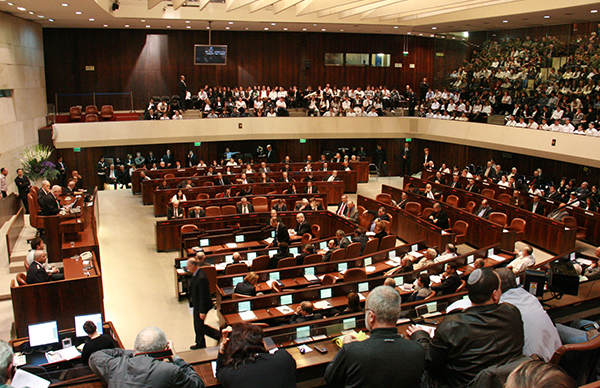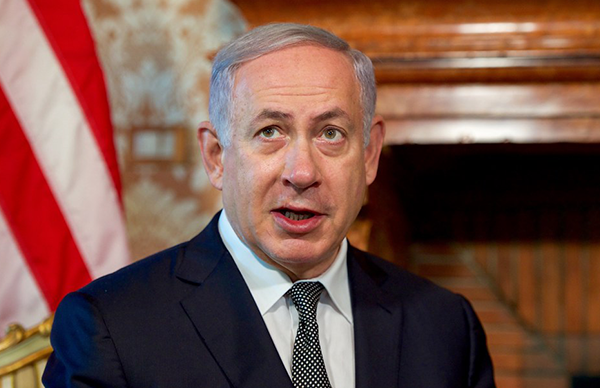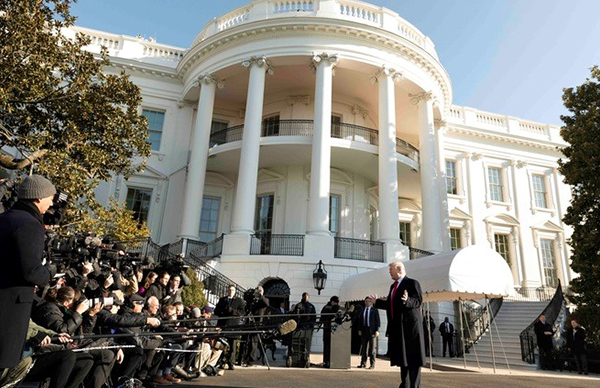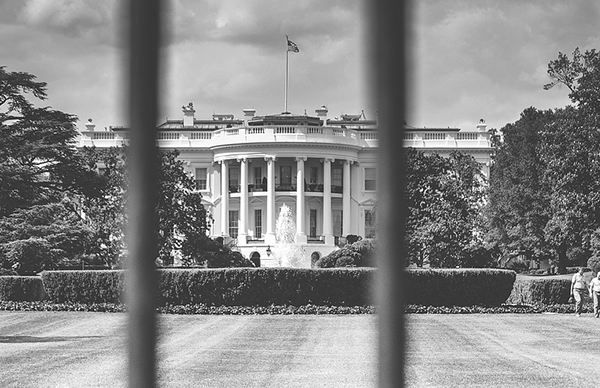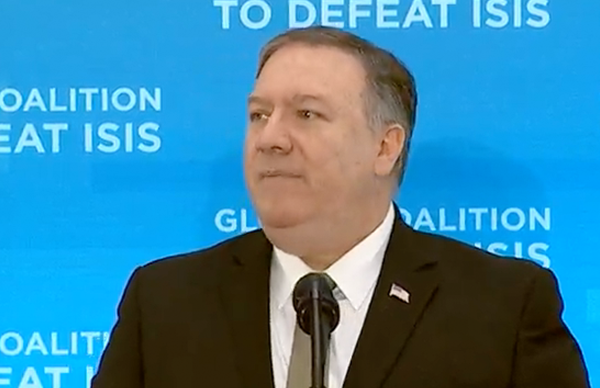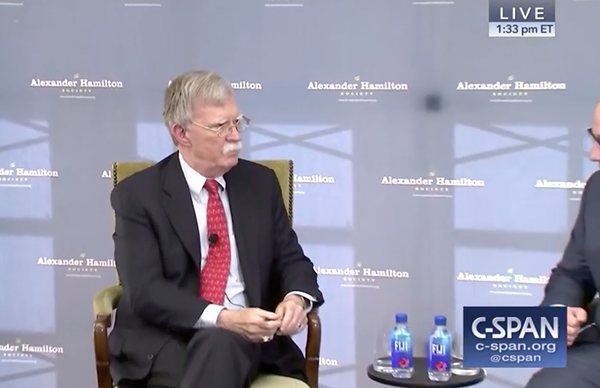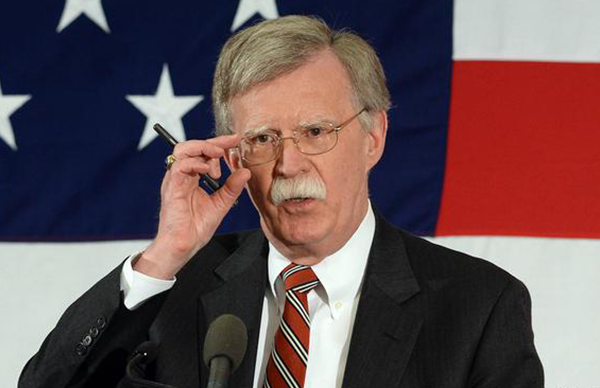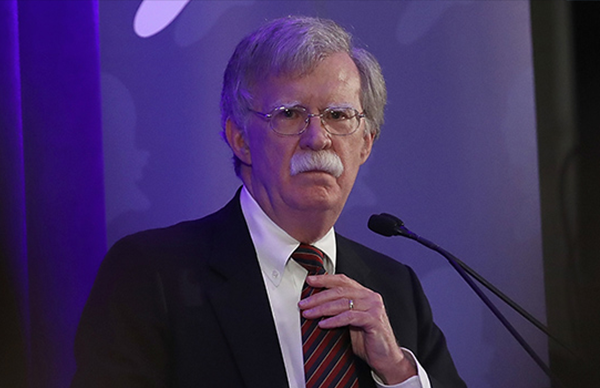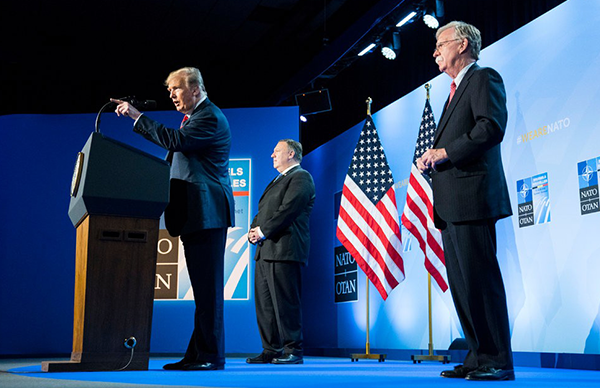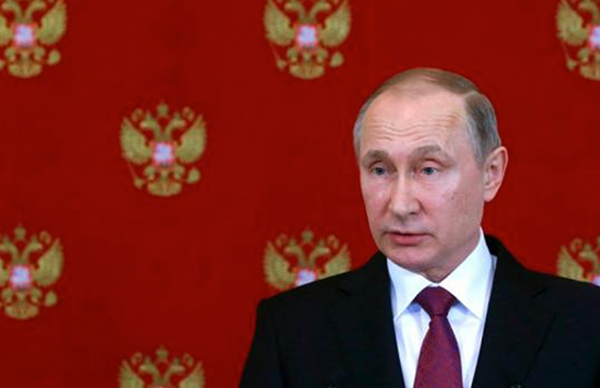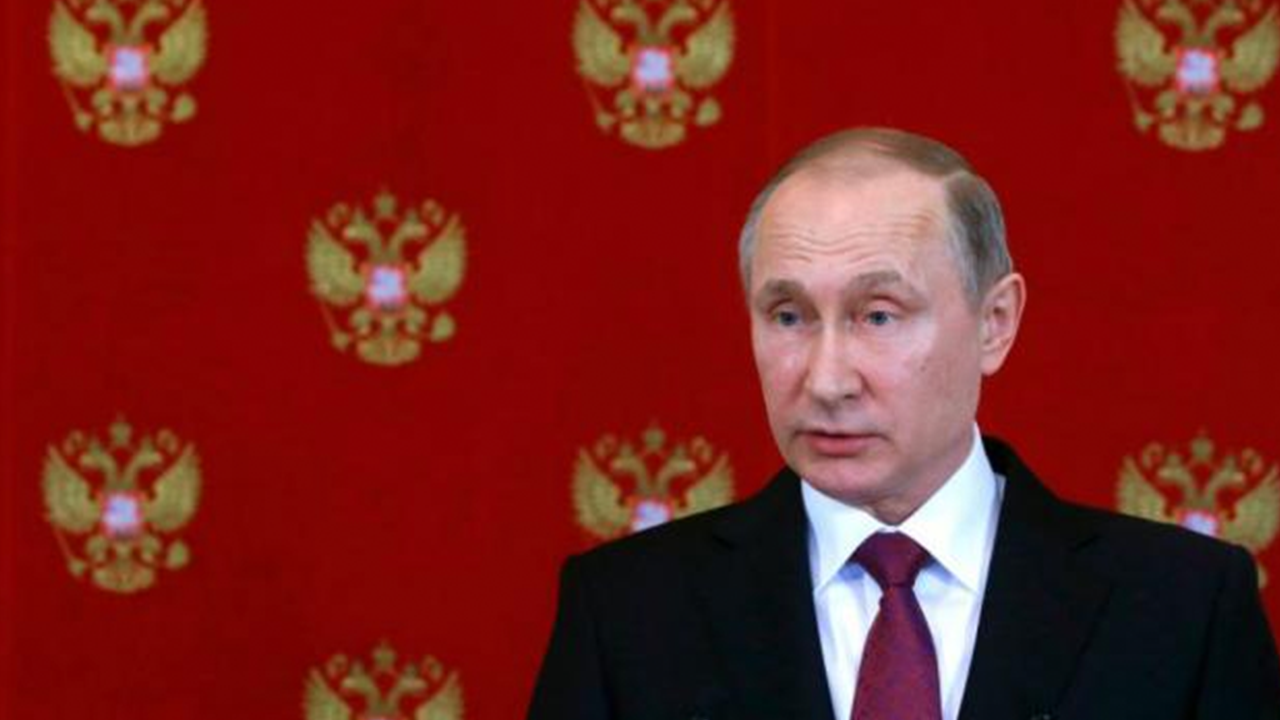By Dr. David Wurmser
Part II
In part I of this essay, we examined how the strategic debate in Israel no longer revolved
around the peace process, but deeper strategic questions. In turn, we examined how there was a strategic evolution in the United States from the late 1950s until the 1970s. In this second half of the essay, we will examine how this influenced Israeli strategic culture and currently affects its political debate, if even in subtle or apparently hidden ways.
Until 1967, Israel had been in its own world, impervious largely to the influences of evolving American defense imagery. It was a land on the edge, and the concept of preemption, along with the idea of war as an episode with a clear start and end in victory of one side over the other, reigned. It had little choice. War could not be ongoing and indecisive, since Israel had too few people and was too poor to maintain full mobilization for war at all times. Instead, it had to rely on mobilization – a structure inherently bounded in terms of time and exertion. Moreover, it was so weak that it knew that unless it shaped the battle from the first shot, it would lose. Together, that implied that Israel had little choice but to embrace a strategy of preemption, speed to maintain initiative, decisive battle, and victory. Israel was a free country which could rely on the agility of their commanders to make spontaneous decisions and seize opportunities as they arose. Thus, when opposed by the top down, centrally- commanded Soviet-based Arab armies, Israel’s preemption, speed and decisiveness exploited, even caused, the fog of a fast-moving chaotic war and gave Israel the advantage it needed to win.
Despite Israel’s victory in the 1967 war, it found no peace. For three years (1967-70), Israel answered Egyptian attacks along the ceasefire line and relentlessly pressured Egypt’s armed forces. Using heavy artillery and raids, Israel made life untenable for the Egyptian army
within dozens of miles from the border. Israel’s airforce, acting as advanced artillery, did the same. Israel gained strategic advantage from this constant application of force by pushing the bulk of the Egyptian army back about 40-50km from the Suez canal, namely out of artillery and anti-aircraft missile range.
The “buffer” created by this strategy shaped the battlefield decisively. To move its forces to the front line in preparation for attack, Egypt would have needed at least 72 hours of unhampered mobilization. Israel’s estimate that Egypt needs a 72-hour widow to sufficiently remilitarize the front line to contemplate launching a cross-canal attack to breach Israeli lines gave birth to the assumption in Israeli military planning that the IDF would have at least 72 hours unequivocal warning in advance of any Egyptian attack, and thus would have
ample time to mobilize its own forces and launch a preemptive attack. Hence was born the idea of 72-hour warning in Israeli planning, but it was based on monitoring the physical deployment of the Egyptian army 40-50 km back rather than more penetrating human intelligence of Egypt’s decision-making structure. The assumption underlying all the planning was that once the 40KM zone is breached, Israel would mobilize and administer a preemptive, devastating blow to Egypt’s army at its most vulnerable moment when it was
fully exposed while in transit to the front line. In other words, Israel shaped the battlefield to ensure decisive victory.
In the wake of the ceasefire, US Secretary of State William Rogers launched a peace plan, while the Egyptians almost immediately began to deploy forces — including its missile defense system — forward onto the Canal within the 40-50km buffer. When Israel warned Washington that it will resume the War of Attrition in response, Washington pressed Jerusalem to restrain itself because it feared resuming conflict would derail the Rogers peace plan. Then, when Israeli insistence intensified, Washington offered a strategic exchange to Jerusalem: abandon the preemptive option and ignore the Egyptian strategic moves in
exchange for an American guarantee of Israel’s military “qualitative edge” over its neighbors.
This qualitative edge involved several aspects:
selling Israel the most advanced aircraft which were seen as capable of defeating the anti-missile system (the F-4 Phantom) and an assortment of other military equipment;
providing Israel strategic aide both against Russia and as cover in international forums for any actions Israel would have to take to maintain that edge; and
increasing aid to help pay for the equipment.
In exchange for a qualitative edge in weaponry and US cover in international institutions, Israel agreed to surrender strategic maneuver to shape its strategic environment and instead adopted a second-strike deterrence posture. It essentially “Amercanized” Israeli strategic thinking. Given the much closer ties to the US military that resulted, Israeli defense planners increasingly dabbled in the emerging adjustments to U.S. deterrence theory, such as the import from economics of the concept of incrementalism, during the Vietnam war.
Eventually, the idea prevailed and defined the entirety of Israeli defense doctrine among its security elites that overwhelming military power – and its offspring, the “qualitative military edge” — itself establishes deterrence. Behind it was the assumption that capability demonstrated will.
Ultimately once having embraced a second-strike deterrent concept, Israel’s security establishment and elites adopted the whole panoply of security concepts and absorbed the strategic culture dominating Western strategic thinking at the time. The era of containment
and deterrence to shape an enemy’s behavior had dawned, and the age of decisive victory in battles toward a decisive victory in war was retired.
In terms of large-scale war, since 1970, the idea of securing deterrence via a qualitative military edge with US weaponry and US strategic cover at the expense of decisive action to achieve victory, preemption and freedom of strategic maneuver has governed Israeli defense doctrine, and almost all flag rank officers in Israel’s military see this as a sine qua non of Israel’s existence. While arguably this doctrine failed catastrophically in the 1973 Yom Kippur War, it only deepened as a result of that war given the increased dependence on US
weaponry and need for cover against Russian aggressiveness in the region and Arab actions at the UN.
Perhaps influenced by the debates in the United States and the rise of the strategic
“outsiders” under President Reagan, for one brief period Israel’s own “outsiders,” Prime Minister Menahem Begin and Defense Minister Ariel Sharon, launched the 1982 war. This war was the last gasp before its final suppression in the defense establishment of the old defense doctrine based on preemption, independent maneuver and decisive victory rather than deterrence.
As in the United States, where the victory of Reagan failed to budge the dominant elite strategic culture of Washington, the victory of the 1982 war did not lead to a reevaluation by the defense elites in Israel of their rejected doctrine, but instead led them to bristle and redouble their efforts to solidify it as the dominant paradigm. Indeed, after the 1980s, in both Israel and the United States the idea won the day and eclipsed all others that:
conflict cannot be won, but only managed by diplomacy, and that
the managing of conflict demanded international institutions serving as “referees” above the players setting the rules and parameters of behavior and the validity of certain outcomes,
conflict can be resolved not by the victory of one over another, but by negotiation (“there is no military solution to this issue was the clarion call), and addressing “root causes,” and that
the superiority of the West (or Israel) is inherently fleeting, either because it is the way of nature (Paul Kennedy; the organic decline of empires) or because the West (or Israel) is incapable of internalizing the attributes necessary to be a great power
(Kissinger’s pessimism). As such neither assuming nor acting to ensure the
perpetuation of its great power is not a firm foundation for national security. The problem is that when you dominate the policy, you own the resulting failure.
And Israel’s reliance on an evolution of U.S. deterrence theory – which came to entirely
dominate the strategic culture of Israel’s security elite – is in Israel under considerable stress. Israel has managed to deal with the Palestinian threat inconclusively and with incremental deterioration. A considerable part of its population spends a considerable part of its time in shelters, or dodging incendiary balloons, divining if there are any tunneling noises coming from below, or at least eyeing the shelters to make sure they are close. The entire country finds itself periodically – annually at least – in shelters. In the north, the distressed 2006 Hezbollah war shook the Israelis’ confidence in their defense establishment. And Israel’s policy of deferring to the US on the Iran issue spectacularly flamed out under the Obama
administration in the JCPOA, namely the “Iran deal.”
Earlier in this decade, in the wake of these stresses, the “outsider” crowd began drifting back into power advocating an older, more “Zionist” outlook on defense questions. They date to an older time, perhaps even to before Ben-Gurion (namely, to Jabotinsky’s concept of victory through the Iron Wall). For these thinkers, war needs to be more decisive and victory possible. They advocated decisive answers to Gaza, warned of American abandonment of Israel on the Iran issue, and believed in the inevitability of preemptive action against Iran.
Plans were even made, and decisions almost taken, but this was sabotaged when Israel’s prime minister faced a “general’s revolt,” namely a situation in which the elite defense
establishment internally, domestically, and even in international structures overtly opposed the prime minister’s emerging decision to launch a preemptive attack on Iran. In the end, they even launched an external public relations and foreign diplomatic campaign to sabotage the decision if finalized.
Israel never struck Iran. Instead, it found itself shaken by a US-Iranian deal which left Israel exposed. A fundamental tenet of the post-1970 Israeli defense imagery had been shattered. The danger was laid bare behind the idea that strategic reliance on the United States was far more important than independent Israeli strategic maneuver and action. And still, Israel’s defense and security establishment sailed on, confident of their grip of defense institutions and institutes, and impervious to the growing sense of their inadequacy which Israelis held.
The defense fissures also converge with, reflect and filter through the current political divide gripping Israel, which also has many other aspects dovetailing with it in terms of “insider” or “Mayflower” elites vs “outsider” or “riff-riff” constituencies which make up the bulk of
Israel’s population right now.
At the moment, a background nervousness has arisen among Israelis because of the frustrating and inconclusive ability of the IDF to return a sense of strategic control and provide a path to victory over the much weaker foes who are increasingly able to hold life in Israel hostage periodically every few months nationally and every few days locally along the border. Currently, an overt debate on this strategic question is crowded out by the other
more visible fissures which drive the choices facing Israeli voters, but deeper down, this
unease with Israel’s defense concept has been growing steadily. Not on the level of its soldiers, but at the top, at the strategic level. Every Israeli gives the Israel Defense Forces and security establishment behind it their two most precious and personal treasures – their sense of personal security and their kids – so any erosion in the confidence of that institution’s top echelon has a profound effect on Israelis’ faith in their institutions and government, and thus influences their vote.
So slowly, the suspicions grow that many Israelis harbor that their defense elites just don’t get it. Israelis are not flocking to bookstores to pick up their copies of Liddell-Hart, Clausewitz or Sun Tzu to sort this out, but they know something is amiss in the one sector Israel cannot afford to get it wrong.
The response of the defense establishment to this growing frustration is essentially to blame the Israelis for their frustration, and those among the leaders who question them. After every round of inconclusive flare-up, the response is consistently, “we have shown the other side how strong we are. They will now be deterred. And if they forget, we will remind them of how strong we are. We are winning, and we always have the upper hand.” And the truly impressive tactics and technological advances are then highlighted to emphasize this superiority and lend Israelis a sense that maybe the IDF does indeed still have what it takes. For the defense elite, the problem is not one of needing a substantive reevaluation, but of needing a better structure of public relations and explanation. For them, the concept is not wrong, but slick “outsiders” have been simply too successful in seducing Israelis with facile answers and leading too many of them astray.
The very formation of the Blue-White Party, while an instrument politically to unify the left and center to oust Prime Minister Netanyahu, can be understood as the culmination of an initiative by Israel’s “defense elites” and their supporters over the last decade to stop the growing suspicions and preempt the rise of new defense concepts occasionally advocated not only by Prime Minister Netanyahu, but by others on the right-side of the spectrum (including Naftali Bennet and Avigdor Lieberman), to embrace a fundamental departure from the 40-50 year old defense imagery. Perhaps most disconcerting to the defense and security elite is that the new Israeli Chief of Staff, Lt.Gen. Aviv Kokhavi, a strong advocate of the idea of decisive victory and who is now beginning to reshape the entire IDF structure along his concepts. He is arming the IDF not to reestablish deterrence, but openly saying his intention is to position the IDF to win the next war speedily and decisively. He is reshaping the IDF, not only in terms of weaponry, but structure as well, more to administer a swift, lethal blow rather than a long term indecisive conflict waiting for non-military means to resolve. In other words, the new Israeli chief of staff is upturning the entire defense
establishment’s settled body of doctrine and ideas.
Since these defense elites sensed this growing anxiety of the Israeli public, but dismissed it as simply the fruits of a political attack from the right, they thus saw its resolution as political, namely by forming a counter-block based on generals, specifically Benny Gantz, Gabi Ashkenazi, and Boogie Yaalon. Allied with the owner of one of Israel’s major publications, it was not their first attempt since the earlier part of this decade to create a new party based on the defense-establishment alumni or leadership, but it was their most successful. Again, the assumption was that the problem was a failure of public relations, not substance.
The emerging tension between the political and cultural direction of Israel, and the
dominant strategic imagery still guiding Israel’s security elites, suggests it is reaching a watershed moment as it deals with its strategic challenges in the region which are increasingly distant from the Cold War and immediate post-Cold War order in which the concepts were born and the ideological nature of the common enemy both Israel and the United States faced and defined through their proxy enemies yields to a new sort of adversary.
As such, while not consciously discussed in these terms, what is really on the table in Israel in these elections is the direction of Israel’s defense imagery. And while the debate revolves mostly over frustrating conclusions to a series of conflicts for the last two decades, the roots of the debate really reach back to the immediate months after the 1967 war, and ultimately to the corridors of power in the United States. Specifically, the divide is really between the “Americanization” of Israel’s defense imagery surrounding the centrality of deterrence versus other strategic concepts, some of which preceded this “Americanization.”
In the hilltop village of Latrun in Israel, at the national armored corps museum, there is a wall of remembrance listing the names of all those from the armored corps who had fallen in combat. The names are listed in chronological order of the time of their sacrifice. When looking at the wall, one cannot help but notice that almost the entire wall were names of soldiers who died until 1982. Only the tiniest of a fraction died since.
Of those that died since 1982, while still a very small number compared to the 40s, 50s, 60s, 70s, and early 80s, one disturbing thing sticks out: they are more recent and accelerating in numbers. While imperfect, this itself could be seen as a morbid measure of the coherence and health of Israeli strategic doctrine.
As such, the way these strategic concepts will play out in Israel could be very relevant as a harbinger of a similar debate which will likely emerge here in the United States.
